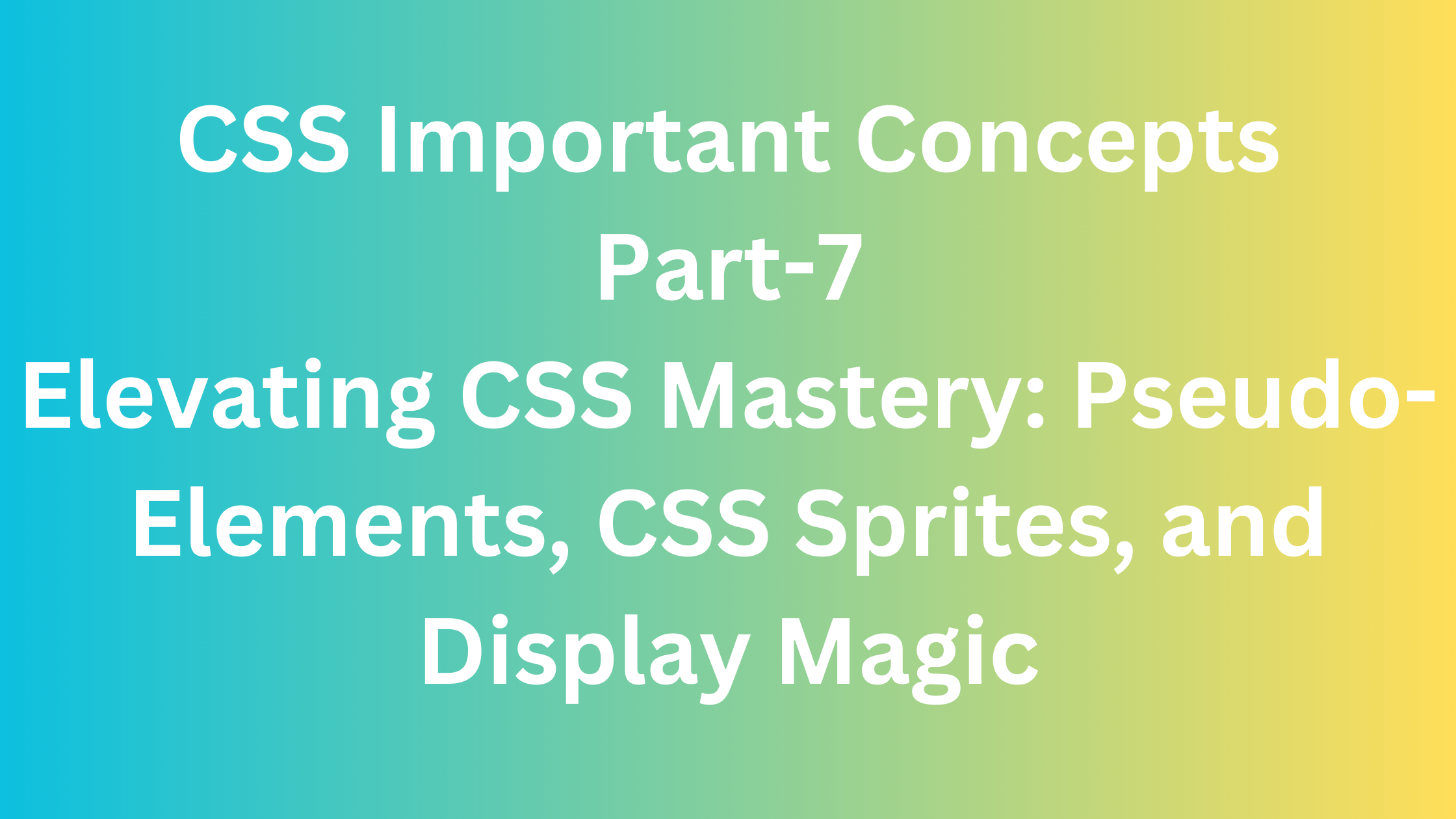Elevating CSS Mastery: Pseudo-Elements, CSS Sprites, and Display Magic
 Ayush Nighoskar
Ayush Nighoskar
Introduction
CSS is a dynamic styling language that offers a plethora of tools for crafting engaging and interactive web designs. In this guide, we'll delve into the enchanting world of pseudo-elements and classes, explore the efficiency of CSS sprites, and unravel the mysteries behind the visibility: hidden and display: none properties.
Pseudo-Elements and Classes
Pseudo-elements and classes provide a way to style specific parts of an HTML document without the need for additional markup. Let's explore their functionality:
Pseudo-Elements (
::beforeand::after):Add content before or after an element.
Example:
.quote::before { content: '\201C'; /* Unicode for left double quotation mark */ }
Pseudo-Classes (
:hoverand:nth-child):Style elements based on user interaction or position.
Example:
button:hover { background-color: #3498db; }
CSS Sprites: Optimizing Image Loading
CSS sprites involve combining multiple images into a single image and using background positioning to display specific parts. This technique reduces the number of server requests and improves page loading times.
Example: Creating a CSS Sprite
.icon {
width: 30px;
height: 30px;
background: url('sprites.png') -60px 0; /* Adjust coordinates for each icon */
}
Visibility: Hidden vs. Display: None
Both visibility: hidden and display: none hide elements, but they differ in how they affect the layout:
visibility: hidden:The element is hidden, but it still occupies space in the layout.
Example:
.hidden-element { visibility: hidden; }
display: none:The element is hidden, and it does not occupy any space in the layout.
Example:
.invisible-element { display: none; }
Conclusion
In mastering these advanced CSS techniques, you've acquired the tools to add finesse and efficiency to your web designs. Pseudo-elements and classes allow you to style specific elements with precision, while CSS sprites optimize image loading for better performance. Understanding the nuances between visibility: hidden and display: none empowers you to control element visibility and layout impact. Experiment with these concepts, blend them into your projects, and elevate your CSS craftsmanship. Happy coding!
Subscribe to my newsletter
Read articles from Ayush Nighoskar directly inside your inbox. Subscribe to the newsletter, and don't miss out.
Written by

Ayush Nighoskar
Ayush Nighoskar
Experienced Software Developer interested in Web Development (MERN stack). Along with my technical skill sets, I possess clear verbal and written communication skills and in due time, am capable enough to do the assigned presentation and solve problems. I am always eager to learn more and improve my skills in various aspects of my career along with the organization.Are you interested in staying up-to-date with the latest tech trends and insights? Follow me for more thought-provoking tech articles that will help you expand your knowledge and skills as a developer.